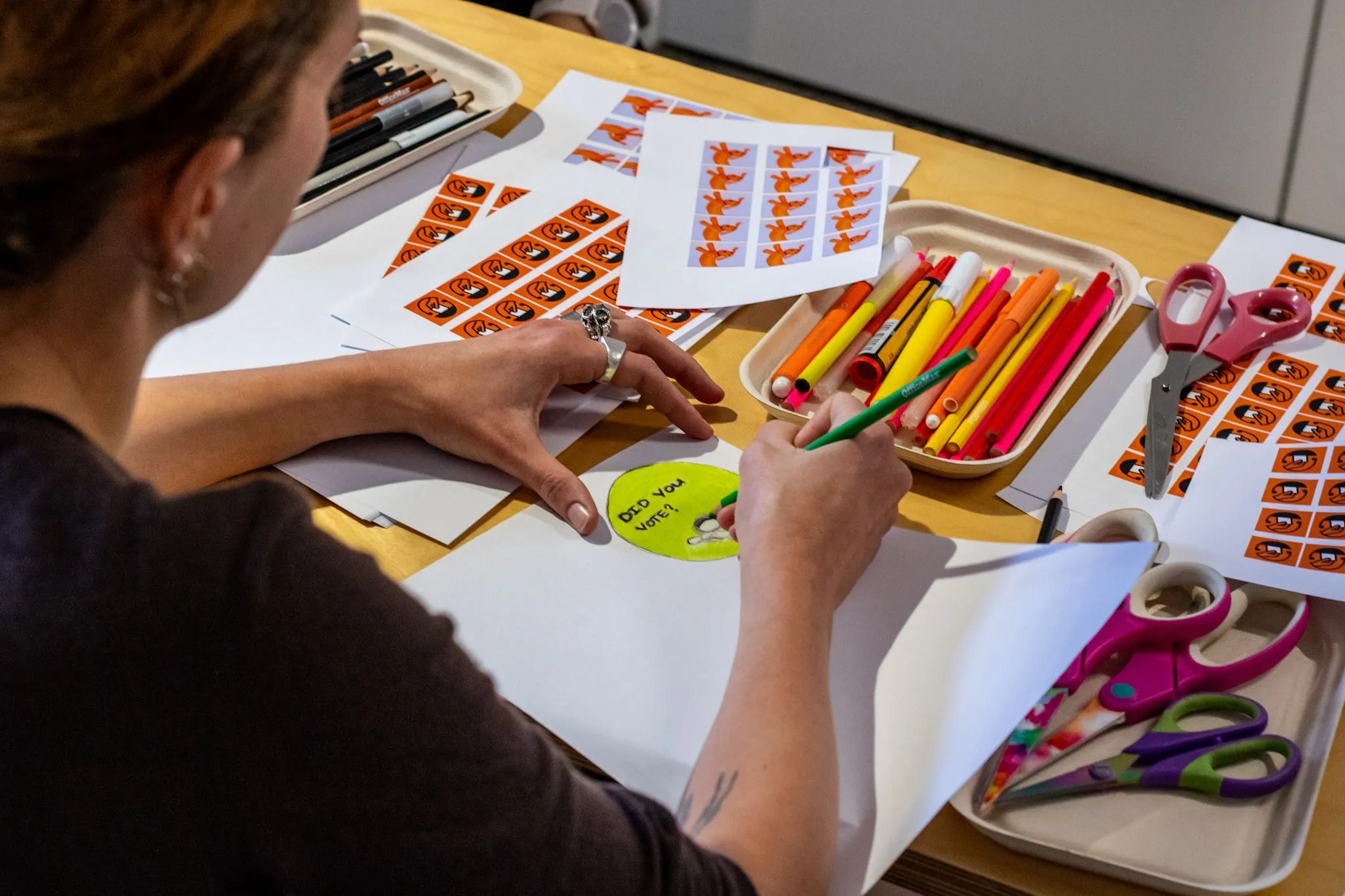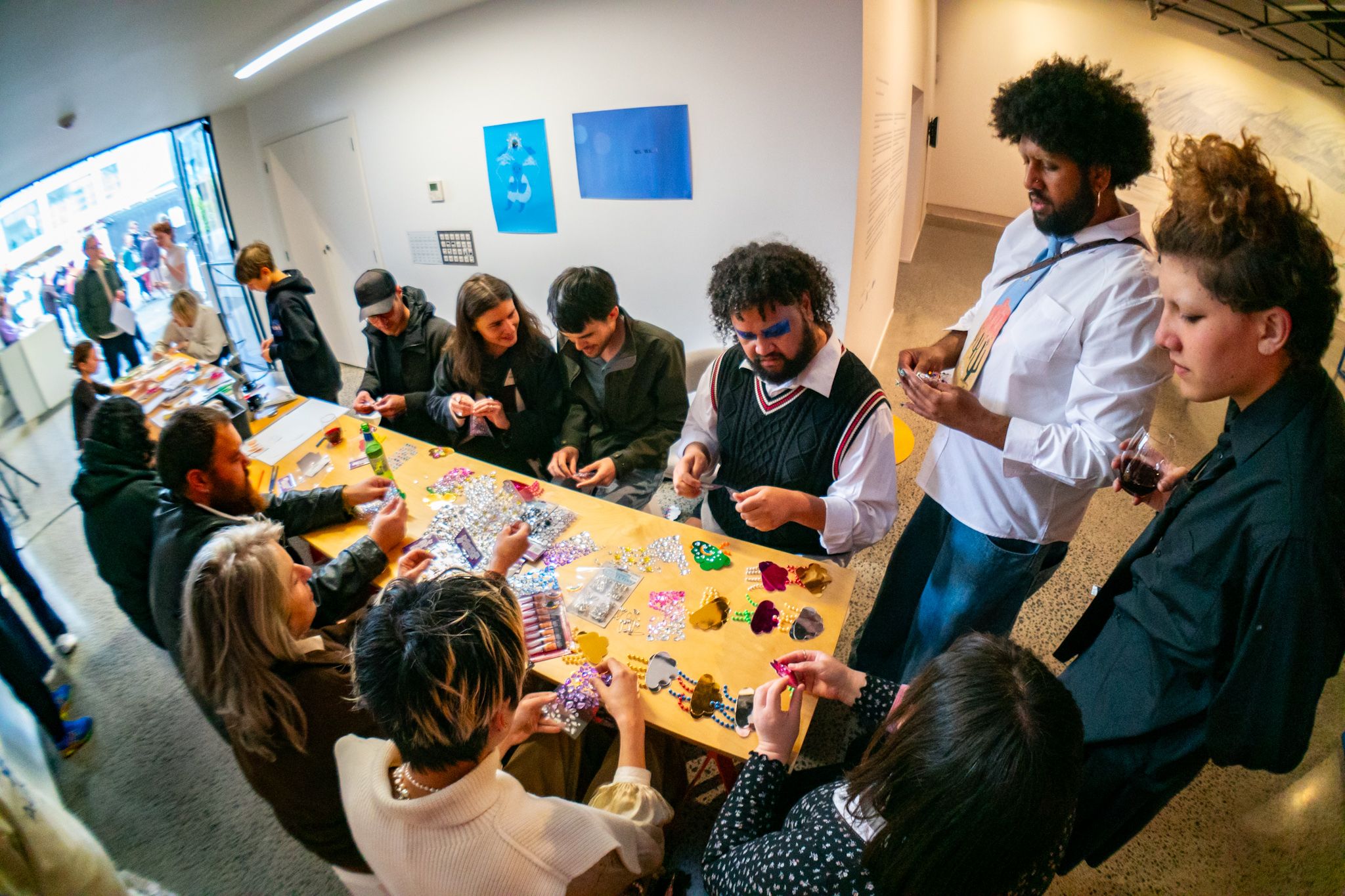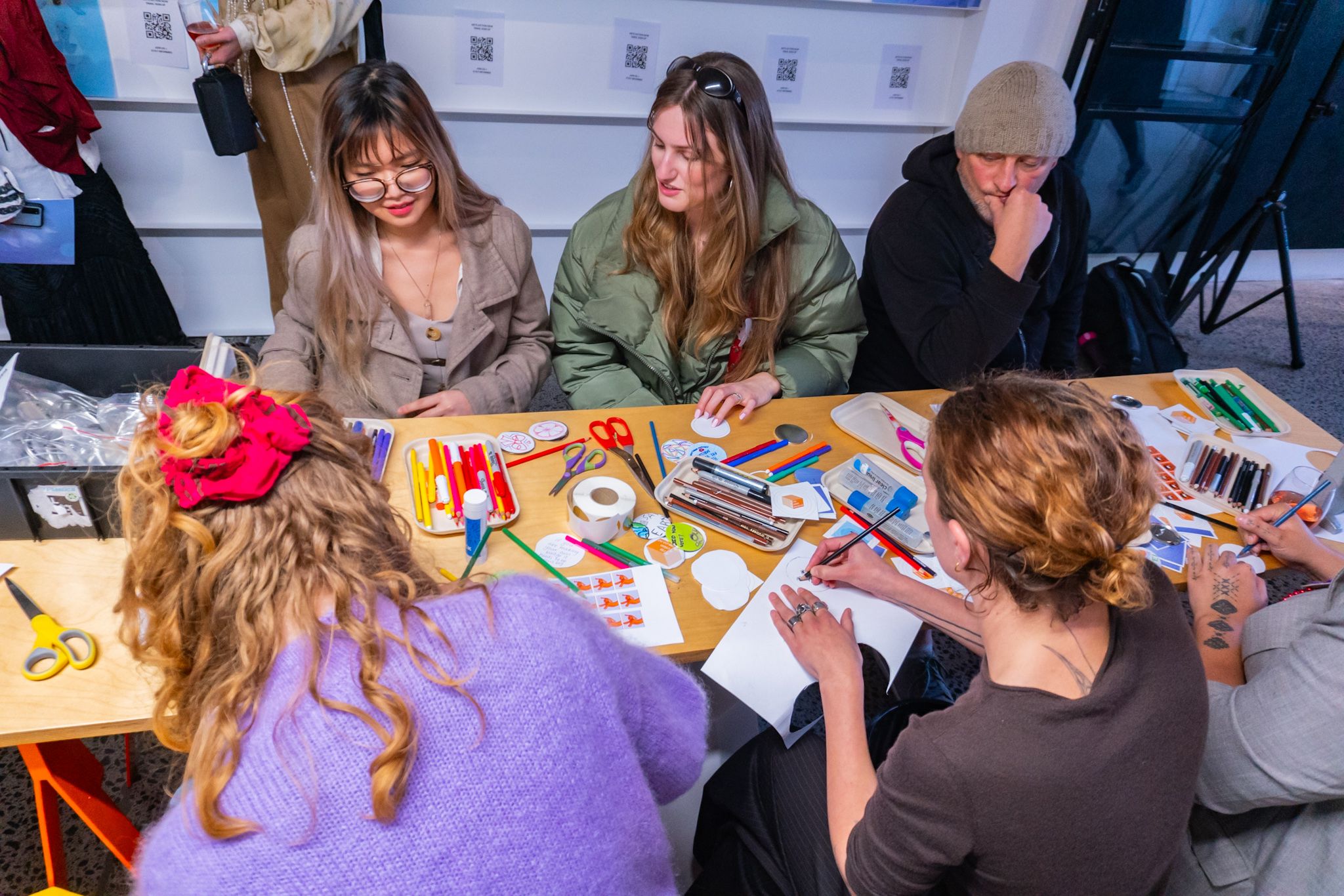Speak Up - Creatives Urged To Get Involved In Govt Cultural Strategy
Public consultation window for the Government's proposed Amplify strategy is only open for a short time longer - see why you should have your say.
Written by

They call this time of year the silly season. A period where fast-paced lives get even more hectic, where calendars become congested and time becomes a precious resource that many would love to get gift-wrapped under a tree.
But the silliest thing the creative community could do this season is miss the chance to have their voice noted and ensure the government feels the passion and urgency in what the sector needs most.
Public consultation for the Amplify: A Creative and Cultural Strategy for New Zealand closes in less than two weeks (15 December). It's an opportunity to show both the emotional investment and the proactivity of creative individuals and organisations.
It's easy to let this window pass you by - either through already having a full plate or a sense of cynicism that it will fall on deaf ears. But the worst outcome possible is to do nothing.
What is Amplify?
Minister for Arts, Culture and Heritage Paul Goldsmith announced Amplify at the start of November - with its full target areas listed and broken down here on The Big Idea - openly encouraging the creative community to bring their thoughts and feedback to the process by 15 December.
Amplify's four key targets to achieve by 2030 are listed as:
- New Zealand to rank among the top 25 nations in the world for culture and heritage ‘soft power’
- The median income for creative professionals to more closely match the median wage/salary income of the country
- The GDP contribution from the arts and creative sector to increase to at least $20 billion
- More New Zealanders to actively engage with New Zealand arts, culture, and heritage
To achieve the above targets, Goldsmith identifies three strategic pillars "to outline actions the Government will take over the next six years to reach these targets."
- Maximising impact through the $450m annual Crown investment
- Nurturing talent and supporting a pipeline to provide sustainable career opportunities
- Reducing barriers to growth – modernising and streamlining government regulation to enable our cultural sectors to thrive
Manatū Taonga Ministry for Culture and Heritage have also held information sessions - one of which is recorded below.
It's big on goals but light on direct details - explained as a chance for those in the know to help spotlight the key areas. That's where you come in.
Why is our voice important?

Whether you support the proposed goals in Amplify, vehemently disagree with them or have ideas on how to get there - adding your opinion shows this is a community that cares about what happens to it.
As artist Juddith Darragh from Arts Makers Aotearoa puts it "Amplify is a way for us as creatives to give feedback around the government's arts strategy...it is important we feed into this process. [The Strategy] needs to be artist-focussed and we need to have input into how it is formed."
Jane Yonge, Creative Catalyst at Te Taumata Toi-a-Iwi, told The Big Idea "We see Amplify as a start, the beginning of something. The sector has been calling for a strategy for years, this might be our opportunity to start to shift things."
The Big Idea Chief Executive Samuel Walsh has been involved in hui and conversations with many other artists and organisations since Amplify's unveiling - and is unequivocal about the need for creatives to get involved in the process.
"A considered Creative and Cultural Strategy offers some desperately needed accountability and acts as a road map for the wider sector so we’re no longer having to stumble around in the dark or head in disparate directions.
"But nothing exists in a vacuum, so to ensure those with sway over the purse strings and policy decisions can devise a realistic plan, they need to hear directly from the source - the artists and organisations who live and breath this mahi on a daily basis - as no one understands the realities, challenges and opportunities better than we do.
"From an organisational or institutional standpoint, the draft strategy shows promise. However, with no additional financial investment currently on offer, it does risk placing substantial weight upon already heavy shoulders and the voices of individual artists - especially those operating outside of these organisations and institutions - feel muffled.
"In order to help fill in the blanks and shape our own future, the government need to know we’re taking this process seriously and so by showing up and advocating for ourselves and our communities now - we can only hope they’ll do the same for us in the future."
Another sector leader, WeCreate Chair Paula Browning adds "This is a rare opportunity to co-design change with government that might have a direct impact on the sustainability and future of our sector.
"While it’s disappointing that there’s little reference to the creative technology opportunity, we’re pleased that Minister Goldsmith has initiated this work.
"Now it is the voices and experiences of the sector that are needed to inform the actions that will follow. The sector is constantly innovating and adapting, and we also need government to adapt to better support us in areas such as trade, regulation and skill development. Policy in these areas often happens without creative voices at the table and this is our chance to be heard.
"WeCreate has been advocating in regard to sector-level issues with ministries such as education, stats, trade and business for quite some time and we often connect MCH officials to their colleagues in other agencies. Our hope is that this strategy will provide a framework for a more joined-up and committed government approach to growing the sector."
Other organisations representing underserved communities are also encouraging those worldviews to be shared with the strategy decision-makers.
Arts Access Aotearoa are among those who have reached out to their supporters to get involved, stating "The draft strategy represents a strong step forward for the arts in Aotearoa, but it lacks a direct focus on accessibility for Deaf and disabled communities. Accessibility must be integral to the strategy – not only as a goal but as a built-in standard.
"We’d like to see accessibility included in the strategy not as an add-on but as a core element, with appropriate and sustained investment. This would help ensure that everyone can access and participate fully in Aotearoa’s creative future."
How do you give feedback?
The straight forward answer is to make 10-15 minutes in your day to complete the consulation survey on the Manatū Taonga website.
You can also choose to print it (PDF here) and mail it in (address here) - or send a more detailed submission or ask for a phone call by emailing consultation@mch.govt.nz
To help simplify the process for creatives unfamiliar or uncomfortable feeding into a process like the Amplify public consultation, The Arts Action Now!!! website has a breakdown on how to do it - including an overview and draft template for response from arts advocate Amber Liberté.

Yonge explains "We created the resources on Arts Action Now!!! to help demystify what’s in the draft strategy. Unless you’re reading policy every day, it might feel like reading a different language. We’re want to help people provoke the strategy, ask it questions and understand what it’s trying to do.
"Of course there are areas to give feedback on, nothing is perfect. It’s important for the Minister to understand what’s most valued and what will have the biggest impact across our broad, diverse and constantly shifting sector.
"Will the feedback change the Amplify? To be honest… probably not much. But there is huge value in consultation, as feedback must be recorded and documented. It becomes a collective advocacy tool to drawn upon."
If you have the time and inclination - read around, ask questions, speak to others whose opinions you respect and bounce ideas around.
What feedback you give to Amplify is entirely up to you. The creative community is made up of many different views and priorities. But don't expect yours to be taken into account if you don't speak up.
They say in elections - if you don't vote, you can't complain about the outcome. The same goes for policies. If you don't take the chance to speak up when this window is open, you can't be upset if your voice isn't reflected.
Speak your mind - stand up for the arts.